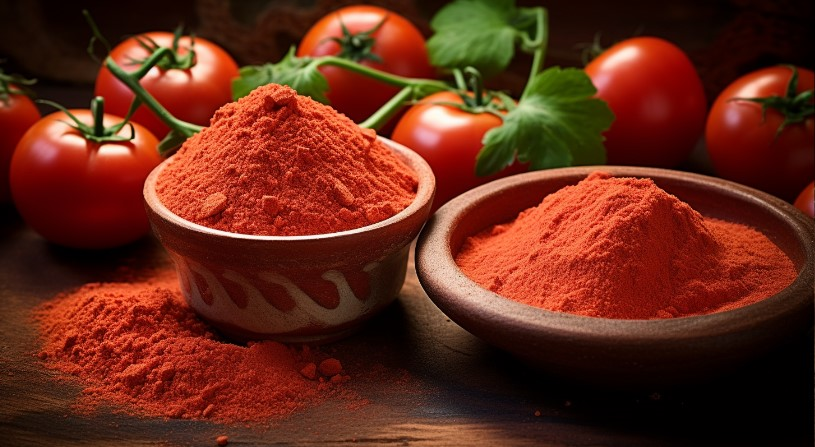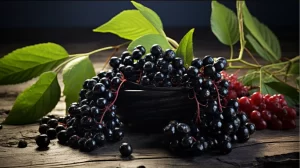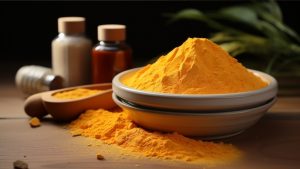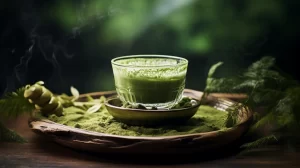You have to know about the natural pigments in food

Natural pigments in food refer to colored substances that can be felt by human vision in fresh food raw materials. Natural pigments can be divided into polyene pigments, phenolic pigments, pyrrole pigments, quinone ketone pigments and so on. These substances were previously extracted and used in the toning process in food processing. However, recent studies have proved that these pigments, due to special chemical groups, have the role of regulating physiological functions, which may play an important role in the prevention of chronic diseases, and gradually attracted attention.
Carotinoide
Beta-carotene, which is rich in carrot, sweet potato, pumpkin, orange and other foods, mainly has the function of improving the nutritional status of vitamin A. It can play the same role as vitamin A in improving immune capacity, treating night blindness and preventing and treating xerosis. In addition, beta-carotene is also an important fat-soluble antioxidant in the body, which can clear singlet oxygen, hydroxyl free radicals, superoxide free radicals and peroxygen free radicals, and improve the antioxidant capacity of the body. Animal experiments have found that β-carotene can inhibit the carcinogenic effect of chemicals, enhance the function of macrophages and prevent cataract.
Carotenoids Manufacturer / Carotenoids Manufacturers/ Carotenoids powder Supplier / Carotenoids Suppliers/ Carotenoids Factory:www.backvita.com
Lycopin
Lycopene is a natural carotenoid found in the diet. It is widely found in natural plants, and the content of lycopene is higher in the fruits of mature red plants, among which there is indeed more lycopene in the fruits of tomatoes, carrots, watermelon, papaya and guava, and it is also more distributed in various tissues and organs in the human body.
Lycopene Manufacturer / Lycopene Manufacturers/ Lycopene powder Supplier / Lycopene Suppliers/ Lycopene Factory:www.backvita.com
Main biological functions:
Anti-oxidation and anti-aging: Lycopene is an effective antioxidant, which can quench singlet oxygen and capture peroxidation free radicals, prevent lipid peroxidation, and protect biofilm from free radical damage. Lycopene has a very strong ability to protect lymphocytes from cell membrane damage or cell death caused by nitric oxide, and its ability to remove oxygen free radicals is also stronger than other carotenoids.
Tumor suppression: Eating more fruits and vegetables can reduce the risk of certain cancers, and increasing the intake of lycopene can reduce the risk of gastrointestinal tumors such as esophageal cancer, stomach cancer, colon cancer and rectal cancer. Lycopene also has a significant inhibitory effect on advanced and invasive prostate cancer.
Regulation of blood lipids: Lycopene can prevent oxidative damage of low density lipoprotein cholesterol through the antioxidant effect in the body, improve blood lipid metabolism, reduce atherosclerosis and coronary heart disease.
Radiation resistance: When ultraviolet light shines on the skin, the lycopene in the skin is the first to be destroyed, and the lycopene in the skin that has been exposed to ultraviolet light is reduced by 31% to 46% than that in the skin that has not been exposed. Lycopene supplementation may reduce peroxidation damage to skin caused by UV rays.
Phenolic pigment
In recent years, anthocyanins, anthocyanins and other phenolic pigments have been studied more. Anthocyanins are a class of important water-soluble plant pigments, which are mostly combined with sugars in the form of glycosides (called anthocyanins). Anthocyanin usually refers to flavonoids and their derivatives. It is a kind of water-soluble yellow substance widely distributed in flowers, fruits, stem and leaf cells of plants. It has similar chemical structure and physiological activity with the above-mentioned phenolic compounds.
Kurkumin
Curcumin is a polyphenolic phytochemical purified from turmeric and widely used in Chinese and Indian herbology to relieve discomfort. Historically, turmeric has been used to improve smooth muscle function and digestive function. Recently, the cytoprotective and immunomodulatory properties of curcumin have also become an area of great interest in the scientific community.
Curcumin Manufacturer / Curcumin Manufacturers/ Curcumin powder Supplier / Curcumin Suppliers/ Curcumin Factory:www.backvita.com
Immune support and antioxidant activity: Studies have shown that curcumin has antioxidant activity, is an immune cell regulator, has an inhibitory effect on COX-2, iNOS enzyme, TNF-α, IL, NF-kB, and is available for many clinical symptoms. Many animal and human studies support the health effects of curcumin on joints, gastrointestinal mucosa, and ocular uvea. Studies have shown that curcumin balances the immune response of the nervous, cardiovascular, intestinal, and respiratory systems. Nerve tissue is vulnerable to oxidative stress due to its high demand for oxygen and polyunsaturated fatty acids and low antioxidant protection. New research on brain and neurological health points to the protective effects of curcumin. Typical doses in human studies range from 375 to 1200mg/ day.
Cell protection: Curcumin has been shown to promote proliferation of many normal cell lines in animal models. Mechanisms include curcumin regulating the type of certain cytokines (especially the transcription factor NF-kB), supporting detoxification, scavenging free radicals, and supporting cell induction and apoptosis. The typical dose in human trials is 450-3600mg/day for 4 months.
Natural pigment supplier: www.backvita.com
E-Mail: [email protected]
Telefon: +86 (029) 8187 2325



